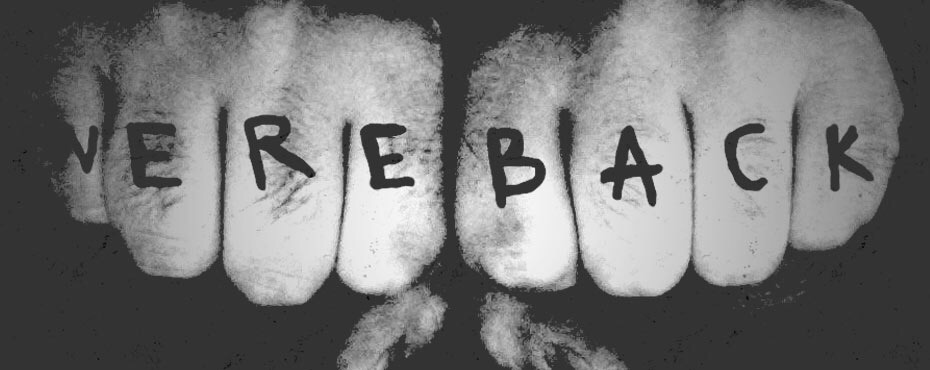
Cuando la traducción llega así, de esta manera, uno no tiene la culpa”.

Cuando la traducción llega así, de esta manera, uno no tiene la culpa”.

A DREAM
1.
The tree that appears in the dream
Grows out of me.
Its leaves drown the silence at rest.
Its roots stretch over the bed I take.
A tree dies in a nightmare.
I wake in the desert.
2.
A dream dawns without the tree.
Dry branches float in the air, hindered.
There is no one to save their roots.
3.
Dream and tree return from the forest.
I flee from the desert.
AN OLD BOOK
Under the dust, the book that an old man opens every time he recovers his memory.
The centuries wander through its pages. Someone speaks from the depth of an emblem.
In one of its pages lives the cry of a warrior.
In the colophon an anonymous being names the ocean.
And then the book returns to its silence.
And the old man to his forgetting.
THE COIN
What does a coin do
Between the dirty fingers of a pilgrim?
Flattened by time
Circular and solar
The coin speaks from both sides.
And so, the pilgrim dialogues with the effigy.
The price of bread or a piece of angel flesh.
THE LOCK
The poet Hai Zi opens the door and stumbles into day. He knows he carries death in his hands,
that sunlight is not wheat or copper. He knows that it is not dawn that stalks him.
The poet Hai Zi smiles and locks the door.
The centuries have passed. The poet Hai Zi returns from the “dark night” with the key hanging from his neck.
He tries to open the door. The mold of the lock impedes it.
Then, sitting on a mat he reads the “Song of the Suicide.”
He hears the cannons in the distance. A dry tree appears in the rain.
Birds fly without feathers.
Hai Zi remains in the dream where he has been happy.
THE SUICIDE
In the deep night I dive into the dense and dark
I sleep with the visage of a killer
Luo Yi-He
Sweet is the poison that flows in my blood
Sweet the song I hear that runs through my veins.
The night collapses over my eyes
I swim in a milkskin of shadows
A heavy dream stabs whoever approaches and touches me.
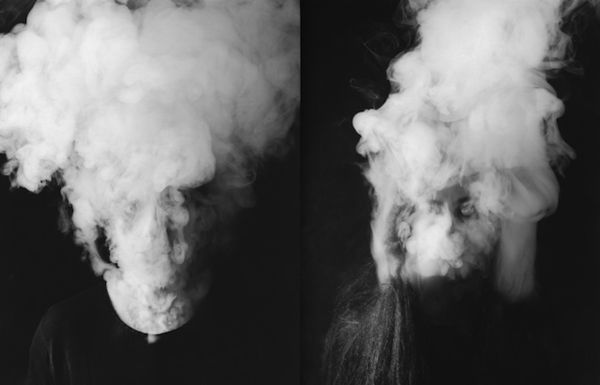
Alberto Hernández (Calabozo, 1952) is one of Venezuela’s most notable poets, and has published several poetry collections. He is also a novelist, literary critic and journalist, collaborating with local and international publications. Hernández was won several awards, including the 2018 Premio Transgenético for his work El nervio poético. This selection originally appeared in Revista POESIA.

to be a woman is to be a machine
scanner and copier
giving birth is necessary
blessing and sacrifice
you’ll know that you are pregnant
when you have a square belly
ink flowing from vagina
belly breaks in two and spouts words
your child is made of cells / a portrait of past lives
the pelvis
o
pen
s
shaped like a heart that opens
springs rivers / lakes / tides
tears made of water of life
the soul runs through the legs
fragment of herself a gift to the world
that is nourished by other spirits
so human
natural
animal
the world gives thanks
people run want to see the child
it’s a body that’s why they read it
inhaling over it not even she understands
no dictionary for being a mother
Andrea Paola Hernández (Maracaibo, 1995) is an actor and filmmaker. Studied theater at Universidad Nacional Experimental de las Artes. Editorial Coordinator at Digo.Palabra.Txt. Founder of the Center for Gender Studies at Universidad Simón Bolívar. Her work has appeared in Verbigracia (El Nacional), Bipolar, El Higo, among others.

ARS POETICA
I believe in writing
From what I am
Because being a poet
Is a mask
Lose Lorca
Lose Neruda
Wilde, Cortázar
Always write
Against the muses
Be their fiercest enemy
The shadow that whips
And denies them the pen
Bye Bye Huidobro
Goodbye Nicanor Parra
Chao Lemebel
Bring it life
Bring it existence
With its tenacious stones
Breaking store windows
Where certainty
Weaves clients
Sweetened by Benedetti
Anesthetized by Ginsberg
Write from what you are
Like the whore
Who makes your husband
Happy
While you make dinner
And you dream of watching the soaps
Together hand in hand
Do not trust the expertizzze
Of the lawyer, philosopher
Of those who read for vice
Or fornication
Do not trust
But live
With honesty
Condensed in the gut
Return paradise to your eyes
This is not a matter of style
This is about honor
Do not fuss with the page
If they call you for a gig
Take it, go nicely
Damn poetry for poetry
life is the greatest
No family ties or qualifications there
No awards worth any applause there
No verse or rhyme there
No metrical constraint there
Let life burn in your veins
Without the drama of academia
Without the spark of inspiration
Of the unpublished metaphor
Just breathe, shudder
Because authentic poetry
Is the one that is first lived
And then told
Be the poem

Yorgenis Ramírez is a Venezuelan teacher, dancer, and therapist. He has won several awards, including the 2016 Rafael Cadenas poetry prize. He serves as artistic director of La Casa Rota, an experimental laboratory for physical theater, contemporary dance and video art. He lives in Caracas.
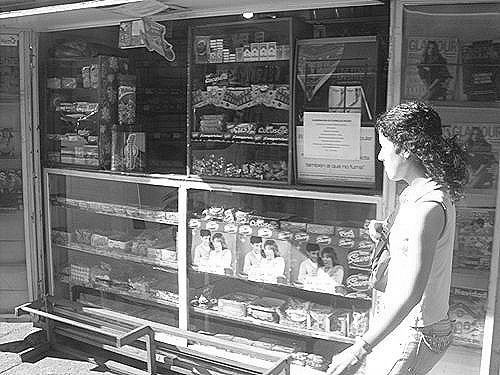
Leila
Your heart is a lunchbox. Your heart is small. It’s strawberry pink embossed with raspberry-scented plastic. Your heart is a sour-candy five-pack, the kind I buy when I feel that the day was tasteless. I hate days that taste like nothing, I need acid or sweet in sickly intense quantities, I need artificial flavors, sugar cocaine addict addiction. You babe, all the planets parading behind your eyes, tearful nights in your sighs. The dirt that sticks to your hands when you sleepwalk at one a.m., go out in your pajamas and start digging, looking for a blue rabbit under your garden. You’ve got eyes big like a night owl, and the rays of your aura glow like a macaw. Each time you speak I hear the whispering sea and the terrible gunshots of a cruel, cold war, I hear the cool breeze on the solitary porch of a beach house and I feel the chill of an igloo on the North Pole.
I don’t know who you are, babe. I saw you in that yard, dressed in so many colors and so many shades of solid black in your gaze; I decided to count the beads of your flower bracelet. Let’s go eat lasagna downtown; let´s get to know these parks as though we’d never seen them before. You with me, I with you, both separately together, but we will be there. We’ll flood the place with questions such as why we belong to each other without knowing each other. And why we made a moment seem like forever when we took a picture together with the new Huawei that had a working camera. Isn’t it ridiculous? It had been so long since I met someone who actually wanted to take me to Saturn. Let´s go there when you get home, when you recognize the presence of something mine in the skin under your nails. Let’s find an abandoned house, not this shelter for coke heads or the homeless, and make a poem without using a single word.
Saili Eyzell (Brasil-Venezuela, 1994) studies Hispanic Literature at Universidad de los Andes. She works as a free-lance model and blogs at Doce Frambuesas since 2008. Eyzell is part of the K-Libre Artistic & Literary Collective.
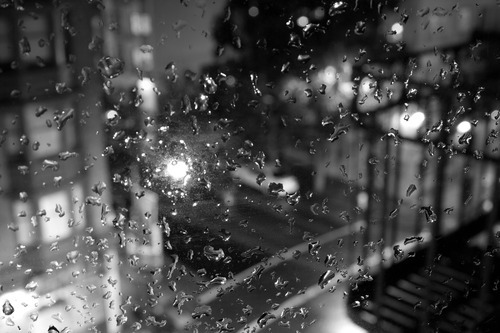
Tell me, Jessy Jones,
don´t you think my hatred is analyzable?
I am given appointments.
I am checked.
I am dosed.
Tell me, Jessy Jones,
what are the roads that lead to Bridge Town,
Cinnamon City, Orson Gate,
where I fall flat before the word,
which is ultimately “he”,
and then the rage subsides.
That’s me:
rage comes with boredom.
Is my boredom my hysteria? as Barthes said;
to avoid it, I take pleasure in ash burning the center
[of my neck,
in nothing, frail detail.
That’s me:
I look up your name in the phone book,
call and hang up.
Forgive me, you recognized the sound of the crickets in my room,
you knew it was me (it was one a.m.),
I jumped up, took a shower and I cried into the mirror:
I’m in it, I live in it,
I slept gently, with resolve.
This is my internal logic:
suicide has become my amusement , my
[vocation:
days ago, I took fifteen medications and called to tell him
it was the only way to make sure that he saw me.
That’s me (manipulative):
I make up names of cities, not because they mean anything, but
to give the poem some rhythm.
Jessy Jones let´s go to Bridge Town, Cinnamon City, Orson Gate,
where the anger subsides and I’m wearing boots, a coat and
blue jeans and go to an urban café. There, several poets discuss
suicide as a personal choice of death.
These bars, paradoxically, are tremendously insomniac,
insufflated with life.
In short, no one is able to decide.
Tell me, Jessy Jones,
don´t you think my hatred is analyzable?
Please blame the context,
break the limit.
That´s my rage:
it haunts me, makes me go from the apex of good to evil.
I hate,
manipulate,
I call myself crazy bitch, crazy bitch,
I call and hang up-
when it disappears
I say thank you.
Tell me Jessy Jones,
don´t you think it´s actually the doctors who are limited?
This poem has a secret history:
born from a very personal dream,
a dream-book.
Plot, ending, paradox-
conclusion (which almost never happens).
Was it you, Jessy Jones, who told me to take more money
[to school?
As a child, I became very skillful at stealing from my
little classmates.
School, home, park.
Was it you, Jessy Jones, or was it the spectrum of rage, love,
or mother?
She:
sought love through medical confabulations,
exchanged roles, broke the limits to devise an impossible
formal love relationship.
She:
has no criterion of reality,
desires beyond the desired,
cannot tolerate frustration.
She:
first fell in love with her boss (commonplace),
was lapidated because she was crazy-
that was the cause of the first depressing
consultation.
They raised the curtain,
raised the symptom: her failure to meet expectations.
She does not tolerate being denied.
They gave her a world of comfort, marble and gold;
she throws tantrums,
bangs doors,
hates being ignored,
though sometimes she wants to be completely absent and when
she commits suicide
she forgets that there is nothing more forgotten than the dead.
People, said Chaplin, ask me how I
[come up with all these
ideas. They are born of an incessant desire to have them.
You are the word:
The more it rejects me, the more I seek it;
when I find it, it might comfort me or abuse me,
it stays for just a while, and then it leaves with another woman.
You are the word:
you stone me for being rude,
I take literary advantage of you,
I want to fuck you.
…
Martha Kornblith (Lima, Peru, 1959-Caracas, Venezuela, 1997) was a Venezuelan poet. She studied literature at Universidad Central deVenezuela. Her books include Oraciones para un dios ausente (Monte Ávila Editores, 1995), El perdedor se lo lleva todo (Fondo Editorial Pequeña Venecia, 1997) and Sesión de endodoncia (Grupo Editorial Eclepsidra, 1997). Her last two books were published posthumously.
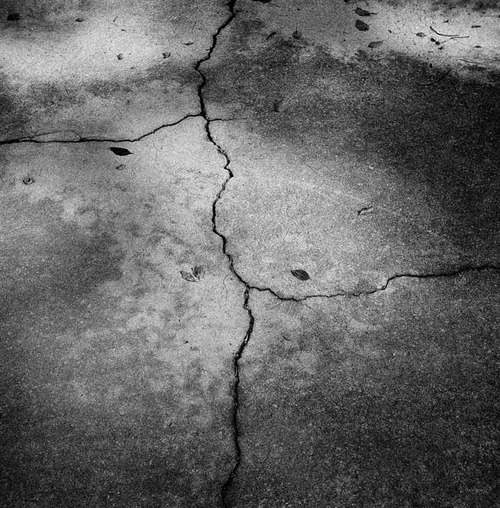
Poems
My father walks through Caracas
as if the city had offered him a kiss.
He is not drowned by the cement.
When death comes,
he extracts the tree from his eyes and leaves it in the corner.
My father was baptized among cold and war,
near a beach without seagulls-
only the Mediterranean and apples.
He grew up among stones, brushing the hair of an old woman
which I resemble,
The wine with which he was fed
had pieces of soil and shivered in the wooden bowl
with the barking of the dogs.
Later,
my father chose this city as though it were a woman.
But he could never change the way he walked,
as the passage of water on stone.
So, standing in the strange sun, my father
still breathes with bits of soil in the throat
and points upward into the thicket
at the white of the tree, of the girl on the street who will walk
when the afternoon asks her for a roof,
and he retires to make coffee, to drink it gray
as the hair of an old woman,
red as a dog’s bark.
My father knows that men should learn from stones,
that only over stone a step is not taken in vain.
I say that a city pertains to the eyes, smoke or water on the lips
that name it,
stones in the veins, in the spine
or the hands.
I only know that the Mediterranean is not mine,
but I’m still looking for the stones
of Caracas.
********
I don´t know how to touch you from my bodies-
Which hand will I stretch this time?
Will its strength suffice and sustain the miracle
enough for
you to see it?
Before I found you, space was a
cell
Then, no name would let me
control it
and I had to swallow it.
There, penetration is only a game, just
something you imagine, because for a while
the branches of trees had entwined with your nails,
your nails with my nipples.
And yet
we collapsed at the table when
due
like two cars that collapse,
like
silence, like we did,
in another time
Forgive the walls the house the sex and the
sobbing
the fear the insistence
the broken vertebrae
forgive the cry
We
now know
that this is not what you wanted
Although the butcher´s hook
still bores into my neck,
I don´t feel it.
Because I survive although I am hanged, the guilt
forces me to dance on tiptoe.
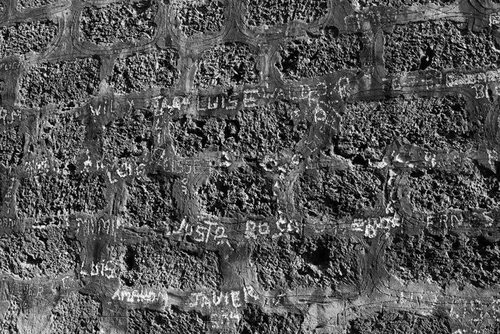
Story of a vision and a voyage
From the bow, in la palita,
we saw, below, among the trucks
and the tourists cars, between the scattered
suitcases, next to the hens,
and the trade bags,
two poorly harnessed horses.
We had seen them in the pier,
before boarding,
harassed by their owners-
to dazzle us, they wanted
to tear off from ageing, by abuse,
a trace of verve.
The horses did not move. They were still
as was the sea at that time. One of them, upright,
brown. But both:
tired little beasts.
The riders
smoking on the deck talking to each other.
The eldest
boasted of his brazen
ways with women.
We got off the ferry on the peninsula
And from there on to the desert!
Such was the fate
we had set.
We travelled
enough kilometers
where nothing grows,
and where there is no one,
in the open land
down to Punta Arenas,
where we swam at the beach of still waters
with the children of fishermen
jumping into the sea from the fishing boats.
Time passed
and in the end we left.
We advanced a stretch when
we saw the nags
walking in the dust
going in reverse
to our route,
towards Cariaco. We slowed down
as we drove.
The boys,
off from their horses,
went slowly, step by step,
through that immensity
like a minefield
between Puerto Araya and Punta Arenas.
That voyage was not possible,
it seemed more like a vision or a dream:
Where were they going? What was the purpose
of that toil from salt to salt?
Impossible to know. The rider
leading
the stallion by the rein,
with the pride
of a gypsy king, dragging
his boots
tiredly,
like the gait of the mustang
behind him.
It was then
that we saw,
at that instant
granted us by time, before
we became invisible
on the road,
the glare of a spur
that the boy wore
to prod the dust.
Desire
Let us take shelter in this room
and not leave it
ever.
Let us watch from here
the gales blasting,
the rivers carrying branches, stones.
We are not interested. Let us be true
cowards
During the time
we have borrowed,
since nothing happens
to distract us.
Until the next day dusks.
Magma
The beds
of these rivers.
All the same when
the human hive flows
filling the country
that bore us.
‘Come tomorrow. ‘
But outside,
between the buses,
and the vomiting cars,
a river flows.
It is the influx
of the hour.
And the sun.
And the grief.
And the acrobat girl.
Araya
As we passed
by those roads,
the pages of a book
written
on red clay, and hills,
we saw hatched
by time
as if a hand
with herons nails
or a huge plow
had opened it
in successive layers
where not a bird flies.
or a fly quacks
against the blue
bluer than the eye
of the sky
swollen,
the sails of the mouth
where no wind beats,
not a leaf
in the grayish haze
of the gulf
The landscape incarnate in the reality of the body.
Dead Can Dance
Still, the leaves,
were made to dance by the wind
a melancholy dance
of hope,
blind, under the storm .

Shoot
Shotgun kisses
behind the door.
On the bed,
a rainbow corpse,
painted blue,
buries its memories
in the pillow.
Mouthfuls of freshwater
remove the salt
enveloping the tongue,
submerged,
vibrant,
pleased.
Traces of autumn
swim on the surface.
In the depth
tears melt
on the barefoot road
of winter
in the rain.
Cries become bubbles,
bubbles of alcohol,
methanol,
flammable,
explosive.
Emotions scatter behind the words,
dream refreshments,
pain sinking in the bones,
Invisibly cutting the flesh,
bleeding sweat,
revealing sacred lies.
October arrived with un-giant steps,
and the unforgettable gazes
got tangled in past shadows.
Unicorns shiver in the cold,
they shiver with loneliness.
Be noble
be cruel:
shoot.
Memo XLI
Time,
stop making mirrors on the clock.
Strange morning,
my eyes look but can´t see
the trace of a digital woman
who has left to find herself,
loving me,
loving her,
tattooing with her eyes
another unfinished forever
in my anachronistic story
with no happy endings.
Sweet spite
drenching with your waters
my hardened cheeks,
my bitter voice,
my broken smile.
You echo your glories
on the empty parliament seat
left by love,
in the legislative body of my eternal loneliness.
So many non-communicative lines
in this, my story,
fragments of you
with a prescribed soundtrack.
I release you from me,
from the prison of my unfinished stories,
from my hurtful dreams,
my gallant words,
noble lies,
half truths,
multipolar moods,
intermittent love,
and the indelible memory of Lucía,
relentlessly chasing me,
overriding the tracks of your love.

CELEBRATION OF THE COLOR BLACK
The light shines, celebrating the purity of the color black:
jet stone black,
black eel,
black that celebrates the snout of the pig in the woods.
The cricket sings it
motionless and proud
under its hard stone.
The black space where my heart beats:
feather foam
where I am overflowing endurance,
slow stir of air and emotions.
The jervedor
loves the intensity of her black feathers:
a pure form
of unshaded light.
She who lays the coitora bird in intricate nest.
The deep black
from which hang galaxies,
ornaments
in the hair
of an invisible woman.
MANGO TREE
“That thou mayest possess all things,
seek to possess nothing.”
Saint John of the Cross
The mango tree
is immortal
and does not need the human.
It forms clear shadows
in the dense bush
and remains.
The palm
can hold the world,
but the mango
has accepted
the dark call of goodness.
Because it did not want to have
something in nothing
it is gone:
beyond the blue dunes,
among the arbutus and cherry pick,
black-thorned.
There,
where two rivers meet-
faces of lonesomeness.
THE CENTAUR
Tied to a rope
I took the centaur
to the back
shed of the house.
You were the wise
teacher of Achilles
and Asclepius
and with one blow
I cut his head
placing on it
a trunk
with its muzzles.
I whispered in his ear:
the plains are the void
where the horse
is all that exists.
They will come,
mere riders,
to steal
your transcendence.
In the end
expect sadness,
evil
and defeat.
*Apure, 1952
THESE HERONS
In memory of
Natalio José Estrada.
These herons
must be Castilian
because they form a V when they fly.
Below
rivers are dammed
and are becoming wider.
Two manatees emerge
and blow faint jets of whitish vapor.
The old house on the port:
hinges, brass locks.
In the constellated meander of one of its rooms
the black nipples of a woman.
The dome
of the church.
In a niche of the facade,
the helmeted warrior
aks those already fallen into the hollow:
Who but God? Who but God?
Who but God?
And beyond the plains,
dust in wind ‘hind travelers
and livestock,
and after them, the heart’s late yearning.
Let the wind of language blow strong
so that these birds can fly far.
THE NATURE OF EXILE
Cattle came from the wooded longing
of longed-for fetters.
What sense had those animals
with human faces?
The kitchen was a bonfire
at midnight.
The vegetable
silence of the vegetable
where the ferns
flap like hawk moth.
What of the stillness of places
I knew so well?
I did not find the constellated neighborhood,
or the blue shirt.
It was the nature of exile,
a river of nothing.
Something cutting an onion into small pieces,
white, like a lamp under a withered tree.
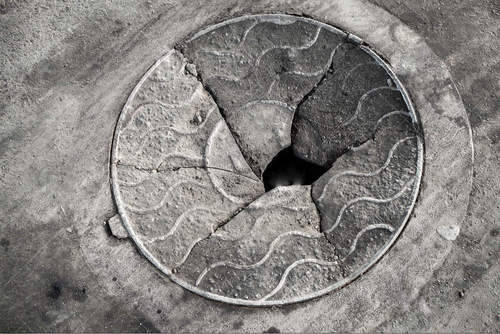
Seven Oxen
I left myself in many corners, but never in St. Agatha.
I licked the goodness of the Austral, but I never swallowed.
I wrapped myself in the thickness of Puerto Toro, but I never drowned.
Saint Catherine blessed me, but I never confessed.
I repented in Tanaka, but then I forgot.
I lied in Caazapa, but no one believed me.
I leapt from the Kama, but never hit the ground.
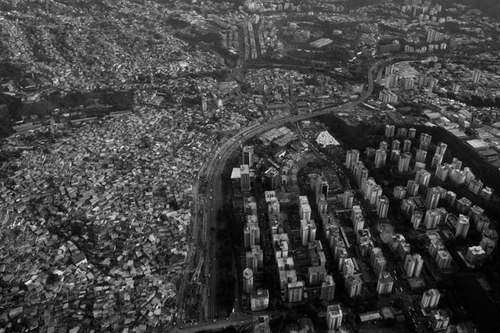
We will pass
Eternal passersby through ourselves,
no landscape but the landscape that is us.
Fernando Pessoa
Caracas lives without us. We are accidental passersby. She ignores us in her illness. Her illness: we, parasites, anthill that undermines. She knows that we will pass and others will come.
This city cradles us without complacency, with whatever love she has in her, atomized in wait of better days, promise with overtones of eternity.
In her course, the Avila mountain keeps her blasphemies inside wrapped by the psychedelia of his changing colors. He stoically tolerates rains and fire and patiently silences his curses. Our spirit clings to the colossal mountain, its height, a conclusive prayer, definitive vision to overcome absences.
We will be followed by others.
Like predators, they will look to the mountain for particles of love.
They too will pass.
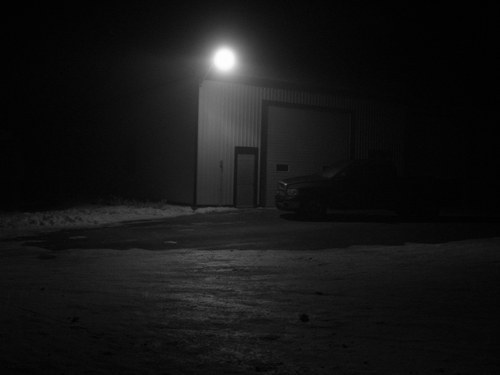
Deadly Caracas,
Sometimes it’s hard to wake up in this city. To exit through any door or crack can be the road to death, under the inclement arm of misery, or out of plain boredom.
But the city can be gentle and tender; can be the difference, because I know, for sure, you’ll be there, the space you fill gives me back calm paves the way for other days more absence.
So is this city, it lives its life, twists wills, ties us to its destiny. I stare at it and I realize that I have nowhere to go. Caracas never loses, never stops beating (even when its chest is open and it is bleeding to death).
Sometimes when you leave I feel I will fall, but then the city reminds me that we are made in its image and likeness.
You must be logged in to post a comment.